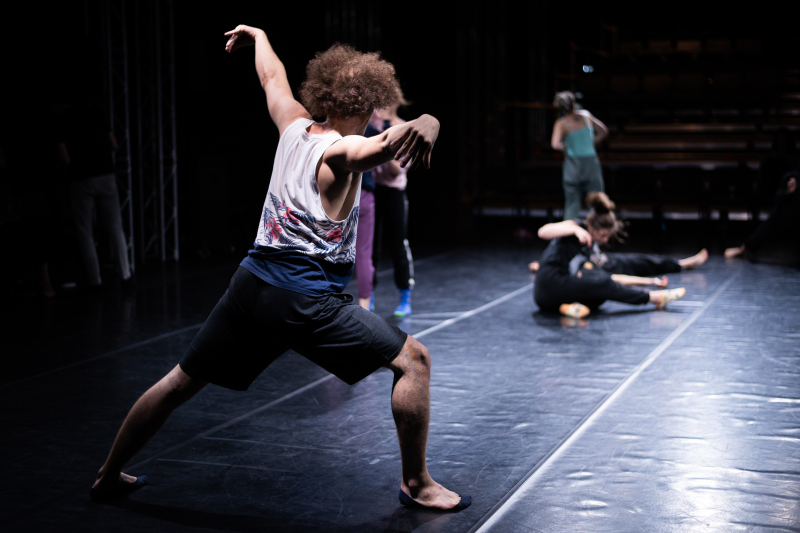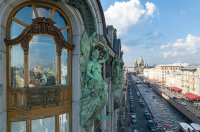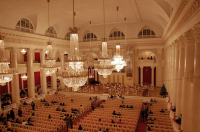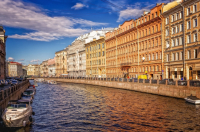Russian Easter exhibition
- March 30 - April 23, Wed, Thu, Sun: 11 am - 7 pm; Tue, Fri, Sat: 11 am - 8 pm; Mondays are days off
- Hermitage Museum
- 500 rubles (choose routes No. 1 and 2 to visit the exhibition)
Learn the history and traditions associated with Easter celebrations in Russia while perusing over 300 exhibits from the 17th to the early 20th centuries. Luxurious Easter eggs that used to belong to royalty and aristocracy, historical clergy outfits, images of saints, and various souvenirs – all of this is bound to paint a much clearer image of Orthodox Easter traditions than any text ever could. Finish it off with a fancy kulich from your favorite bakery (conveniently, there’s a Bushe and a Volcheka nearby) – and there you have it, a perfect Easter celebration.
Major Easter Concert at St. Petersburg Polytechnic University
- April 16, 7 pm
- Peter the Great St. Petersburg Polytechnic University (White Hall)
- 390-640 rubles (go here for tickets)
And if you want to honor the occasion even further, consider visiting this concert at a rather peculiar location: the White Hall of St. Petersburg State Polytechnic University (colloquially known as Politekh). Accompanied by the organ, soloists from St. Petersburg Music Hall and the Rossica ensemble will perform Bach’s Magnificat, as well as works of several Russian composers.
Enjoy Cannes at Lenfilm Studio
- April 15-16
- Lenfilm Studio
- 350-370 rubles (tickets here)
If Easter is not your thing, you may opt to get a taste of last year’s Cannes Film Festival selection at Lenfilm Studio. Curiously, the blurbs for both films feature the word “riveting” – which might be expected for a thriller (Stars at Noon) but sounds quite out there for an identity-search picture (Return to Seoul). Which one would you choose?
Malambo workshop by Malevo
- April 17, 11:30
- St. Petersburg Theatre of Musical Comedy
- Free (register in advance)
A feature in the program of the annual Dance Open festival, this workshop is your chance to learn some moves of the malambo Argentinian folk dance from Matias Jaime, the head of the famous Malevo collective. When performed by the dancers, malambo gains new motives, enriched by hip hop, flamenco, and other styles, as well as a different worldview from those of its original performers – gauchos (horsemen). Organizers promise that you will discover a new way of being onstage, pierced with the energy of this expressive dance form.




